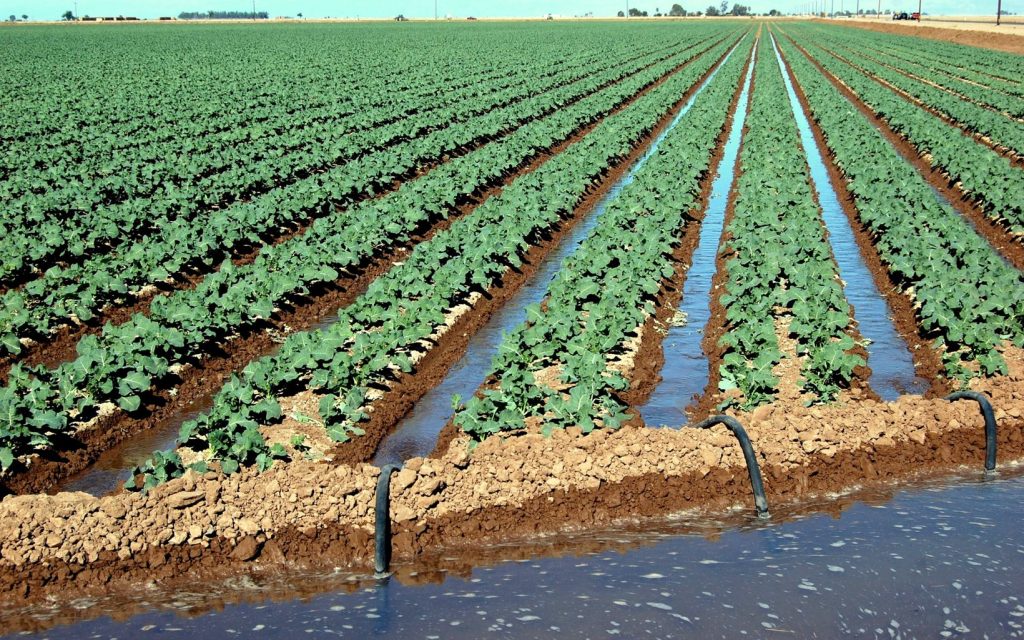KATHMANDU: The government has declared that it will modify the way in which agricultural subsidies are distributed in response to complaints about their abuse.
The budget for the fiscal year 2023–2024, which was unveiled earlier this week, changed the subsidy model, according to Finance Minister Dr. Prakash Sharan Mahat.
The slogan for the production-based agricultural subsidies, “Utpadan Sathma, Anudan Haatma,” has been announced by Finance Minister Dr. Mahat.
All other agricultural subsidies will be based on the purchase of high-quality seeds, chemical fertilizers, insurance, and mechanization.
To make the subsidy system systematic and transparent, it is rumored that new standards and procedures will be developed and put into place by mid-August. Real farmers should profit and contribute to higher agricultural output, it is thought.
The government has introduced the budget with a high priority on the agricultural sector, despite the fact that there has been no increase in production in the nation while billions of rupees’ worth of agricultural and animal products are being imported from abroad.
The government has increased funding for the agricultural sector even though the budget for the fiscal year 2023–2024 has been reduced.
Dr. Mahat, the finance minister, has increased the budget for agriculture by Rs 30.5 billion for the upcoming fiscal year. The Ministry of Agriculture and Livestock Development has been given a budget of Rs 58.98 billion for the upcoming year.
The government has allocated Rs 55.89 billion in funding for the current fiscal year 2022–2023. Increasing agricultural production has received a lot of attention in the budget.
The budget has prioritized boosting the agricultural sector’s output and productivity, which is the foundation of the entire country’s economy.
The budget prioritizes food and nutrition security while modernizing and commercializing the agricultural sector. Appropriate plans are made for the storage and marketing of agricultural products.
A production-based agricultural subsidy system will be implemented, according to the provincial and local levels of government.
The budget calls for increasing technology, mechanization, and the use of interns in 16 super zones and 177 zones as part of the Prime Minister Agriculture Modernization Project.
It stated that learning and earning programs would be carried out in 660 blocks in the province and 1,053 pocket areas at the local level. 3 Point 22 billion rupees have been set aside for the Prime Minister Agricultural Modernization Project.
In addition to encouraging the private sector to conduct ethnographic research for the development of high-quality seeds, a policy has been adopted to make the nation self-sufficient in the supply of quality seeds.
If the farmer purchases high-quality, high-yielding seed from the producer, approximately Rs 400 million has been set aside to provide 50% of the cost through the appropriate local level as a subsidy.
With the slogan “Raithanema Garva Garau,” the government has adopted a policy to protect the seeds of locally grown traditional, natural, and nutrient-dense food crops.
The local production and trading firm of the Karnali Province’s crops from Marsi Paddy, Kaguno, Millet, Buckwheats, Barley, Palpa and Salyan’s Ginger, Mustang’s Potato, Gulmi Coffee Beans, and other places will be promoted by branding and assistance with production and marketing as per the budget.
For the purpose of subsidizing farmers’ use of chemical fertilizers, the government has set aside Rs 30 billion in funding.
A budget of Rs 470 million has been set aside in the budget to manage the graduate labor force in agriculture and animal husbandry at each local level under the themes of technical services in farms and support in production.
The budget has been set aside, according to Finance Minister Mahat, to offer technical assistance to farmers working in the fields.
The budget calls for increasing rice and potato cultivation at 100 local levels, creating hybrid rice varieties, and offering production-based subsidies to increase rice cultivation in order to achieve self-sufficiency in these crops. Programs are available to support and efficiently use organic agricultural production.
In addition to a program to establish natural farming as a government agricultural farming model, there are programs to promote natural farming without the use of pesticides and fertilizers.
A program to promote the dissemination of the experience and expertise of successful farmers who have performed outstanding work in the areas of agriculture, fruits, vegetables, animal husbandry, etc. Is included in the budget.
The Krishi Gyan Kendra has a program to enlist such farmers as agricultural extension agents by assuming the persona of Guru Kisan.
The budget has adopted the practice of presenting the President’s Best Farmer Award in collaboration with the provincial government in an effort to elevate the status and appeal of the agricultural industry.
An allocation of Rs 800 million has been made to cover the costs of promoting sugarcane production to farmers, with a priority on ethnic development and sugarcane cultivation.
To encourage entrepreneurship by luring young people into the agriculture and livestock industries, a budget of Rs 120 billion has been set aside for the operation of the youth start-up grant program in collaboration with local authorities.
A policy has been adopted to encourage young people to work in the agricultural sector through financial access and entrepreneurship development, and the small farmer enterprise development program has been gradually expanded to all local levels.
A budget of Rs 300 million has been set aside to promote farming through land consolidation, to create a legal framework for contract farming, to standardize barren land throughout the nation in collaboration with local authorities, and to use it for contract and collective farming.

